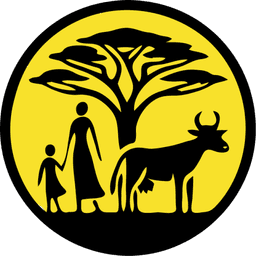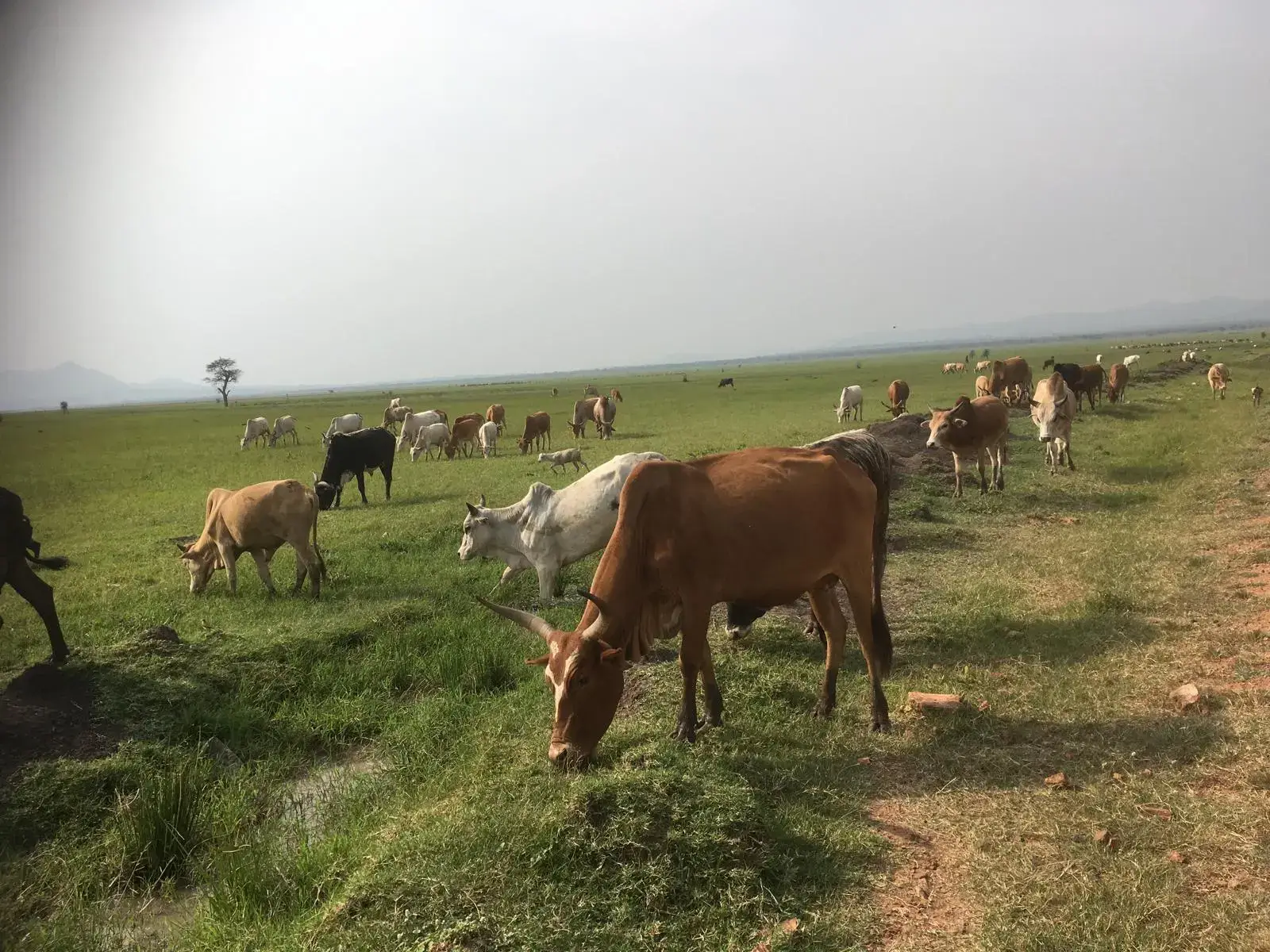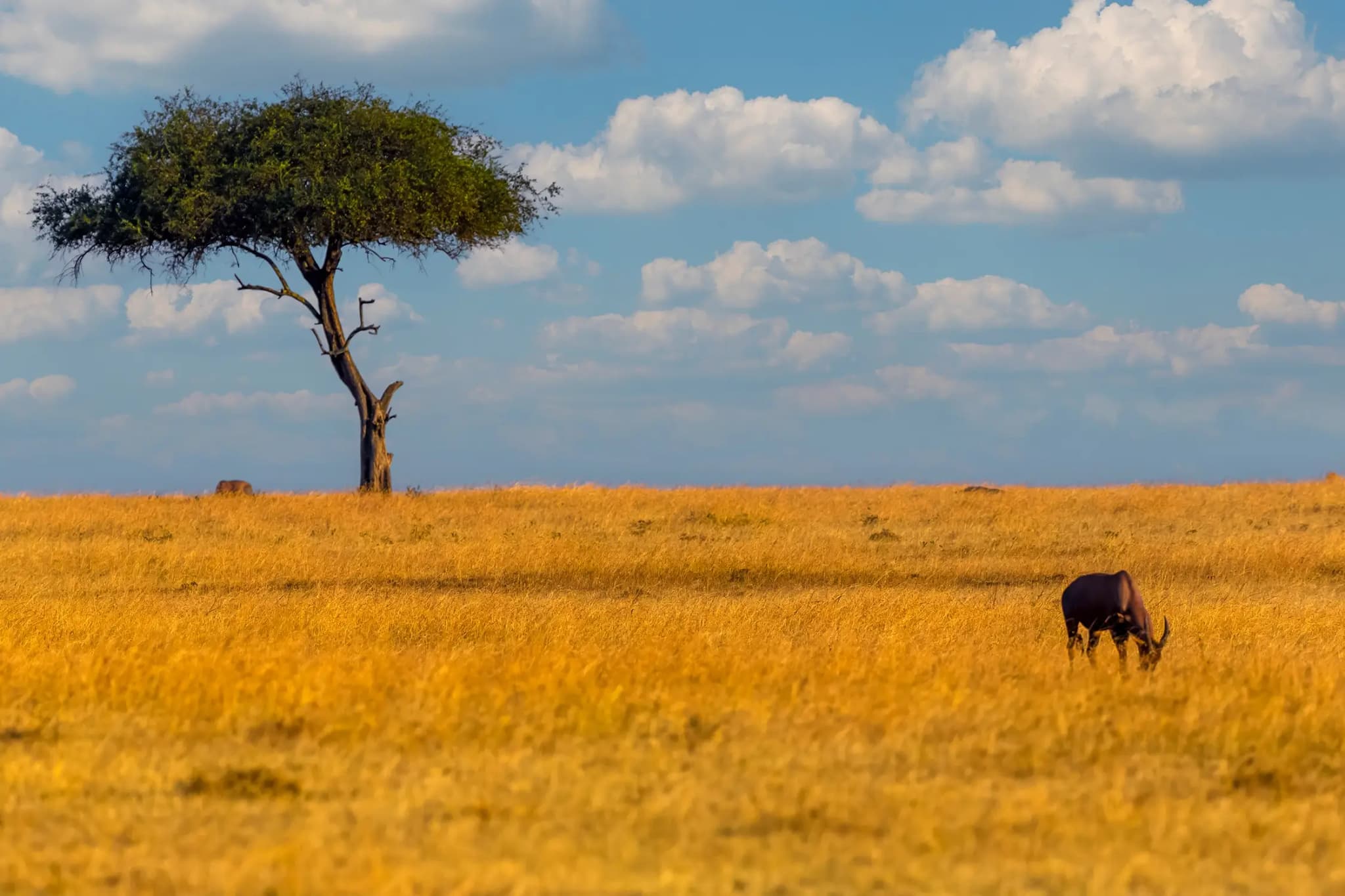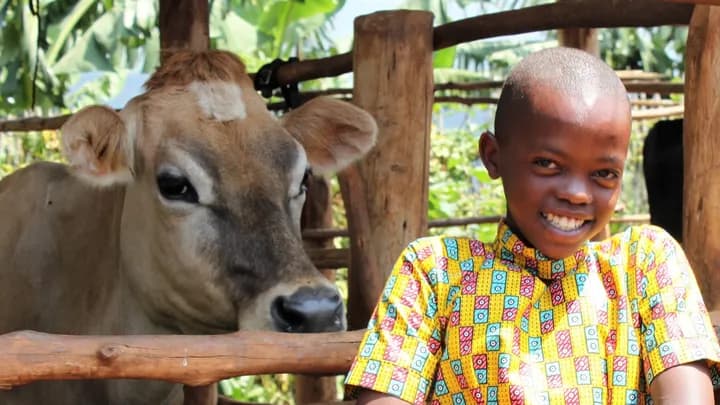A Sustainable Solution
In the Serengeti district, small-scale farmers produce high-quality milk, but much of it goes to waste. Meanwhile, lodges rely on imported dairy, increasing costs and emissions. This project connects farmers with the tourism industry by establishing a small-scale processing facility. The result? Fresh, organic dairy products—milk, yogurt, and butter—delivered to Serengeti lodges. A short supply chain reduces waste, supports local businesses, and strengthens sustainability.
Building on traditional livelihoods
Kuria, Ngurimi, and Ikoma tribes have a rich tradition of cattle herding, where livestock represents economic and cultural value. Collaborating with these communities, we create a structured market for their milk, building on existing knowledge, strengthening the local economy and respecting cultural heritage.
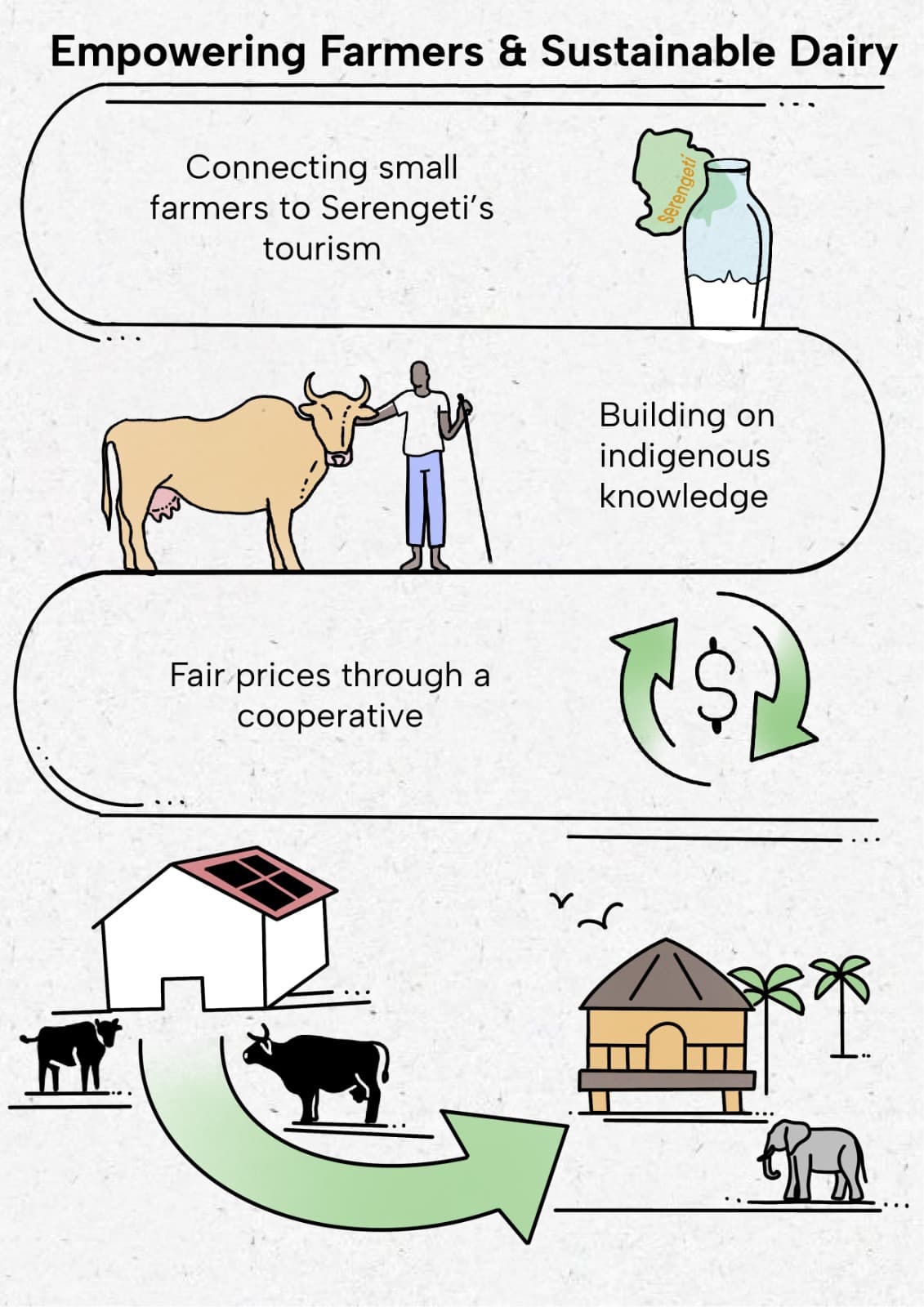
Strengthening Communities through Cooperation
We organize a cooperative, which will give farmers a strong voice to negotiate wages and organize future community projects. The cooperative ensures a fair income for all members, providing increased access to essentials like healthcare, education, and clean energy.
It holds a significant share in the social enterprise ‘Under the Tree Serengeti Dairy Ltd’ so that profits are predominantly reinvested into the community in the form of various community development and indigenous environmental stewardship programs.
Conservation: An Effective Solution Against Poaching
Economic insecurity can lead to poaching and deforestation, threatening the Serengeti’s ecosystem. By providing a stable dairy market, this project offers an alternative. Selling milk at fair prices provides families with a reliable income, providing alternatives to poaching and harmful practices
Sustainable practises and zero-waste approach
The Serengeti Dairy project is designed with sustainability at its core. We apply strict organic practises and help farmers meet organic production standards, ensuring milk is produced in harmony with nature. The processing facility will use solar energy and locally sourced materials and both our facility and logistics will use a zero-waste approach. We aim to serve as a benchmark for sustainable, localized supply chains, setting a new standard for responsible farming and conservation-focused economic development in the region.
Regenerative Tourism: A Shared Commitment
The Regenerative Travel movement sees tourism as a force for positive environmental and social impact. Our project not only reduces the carbon emissions associated with transporting dairy products but also strengthens the relationship between tourism and community. Guests can enjoy fresh, locally sourced products while knowing their stay contributes to empowering smallholder farmers and preserving the Serengeti's unique ecosystem! Strengthening ties between farmers and tourism creates a positive cycle of economic prosperity and environmental stewardship in the Serengeti and ensures a harmonious coexistence for all!
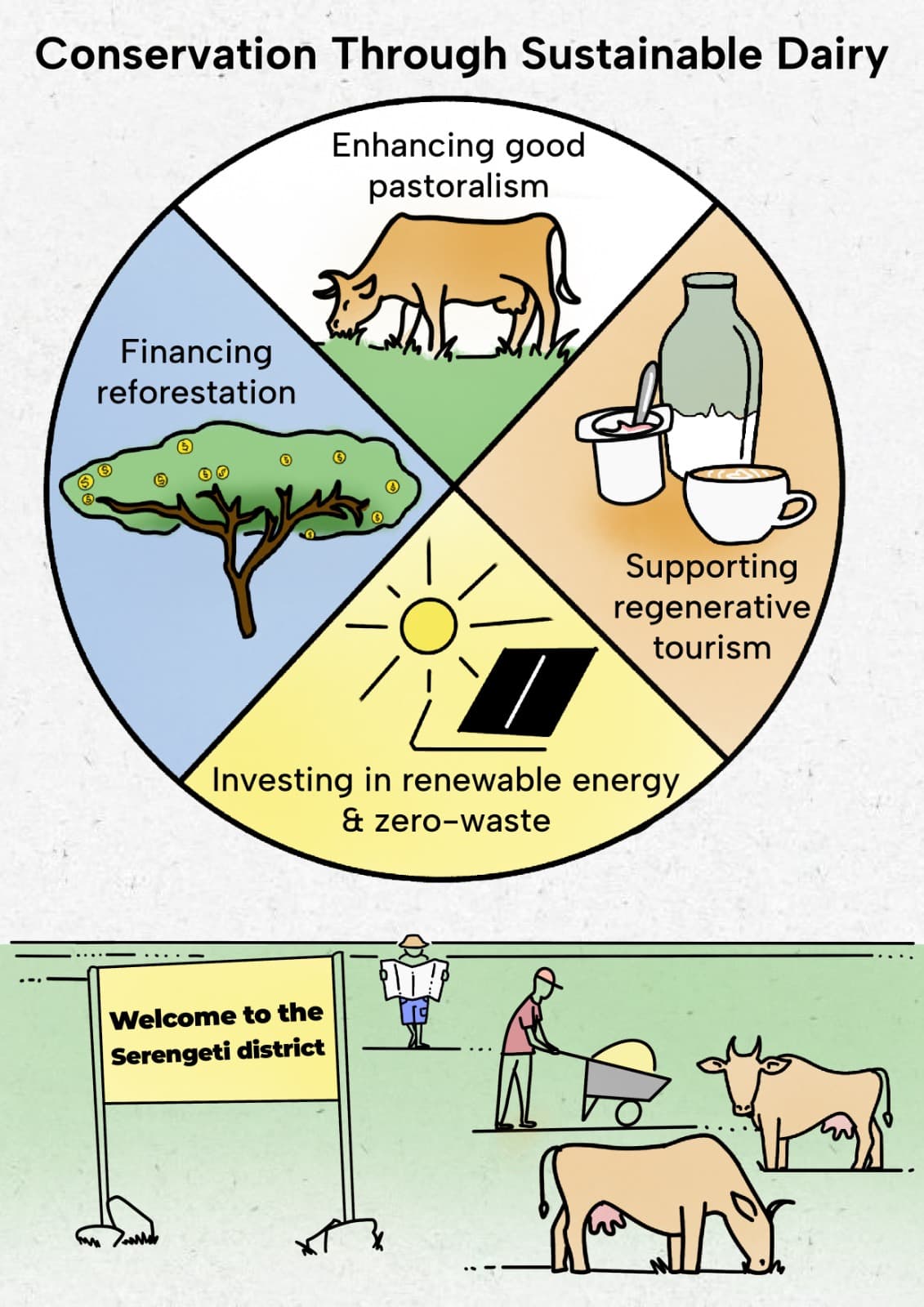
A Vision For The Future
We believe in smallholder farming and short-production chains. We start with a small processing facility, engaging between 5-8 villages. If successful, we will expand to new locations, always in partnership with local communities. A portion of the profits will fund tree planting and waste management programs, reversing deforestation and pollution.
Following our philosophy, we focus on empowering indigenous environmental practices and knowledge. Starting small, the cooperative plans to grow organically, setting a benchmark for sustainable development in the Serengeti.
By connecting local farmers to the tourism industry, the Serengeti Milk Project is creating a virtuous cycle of prosperity, conservation, and sustainability. Join us in supporting this transformative project.
